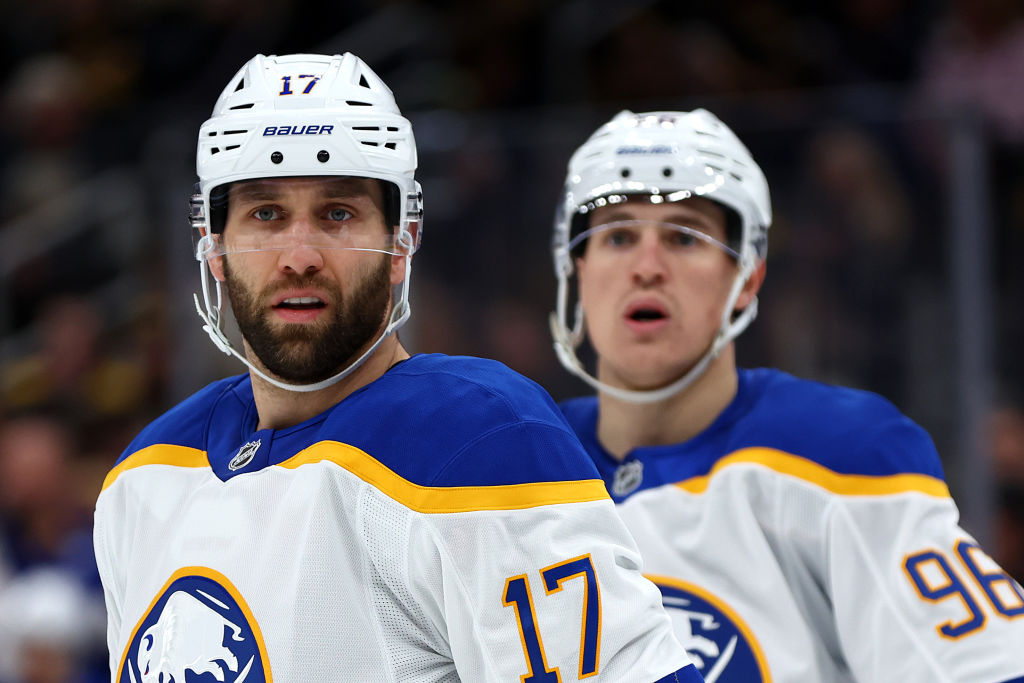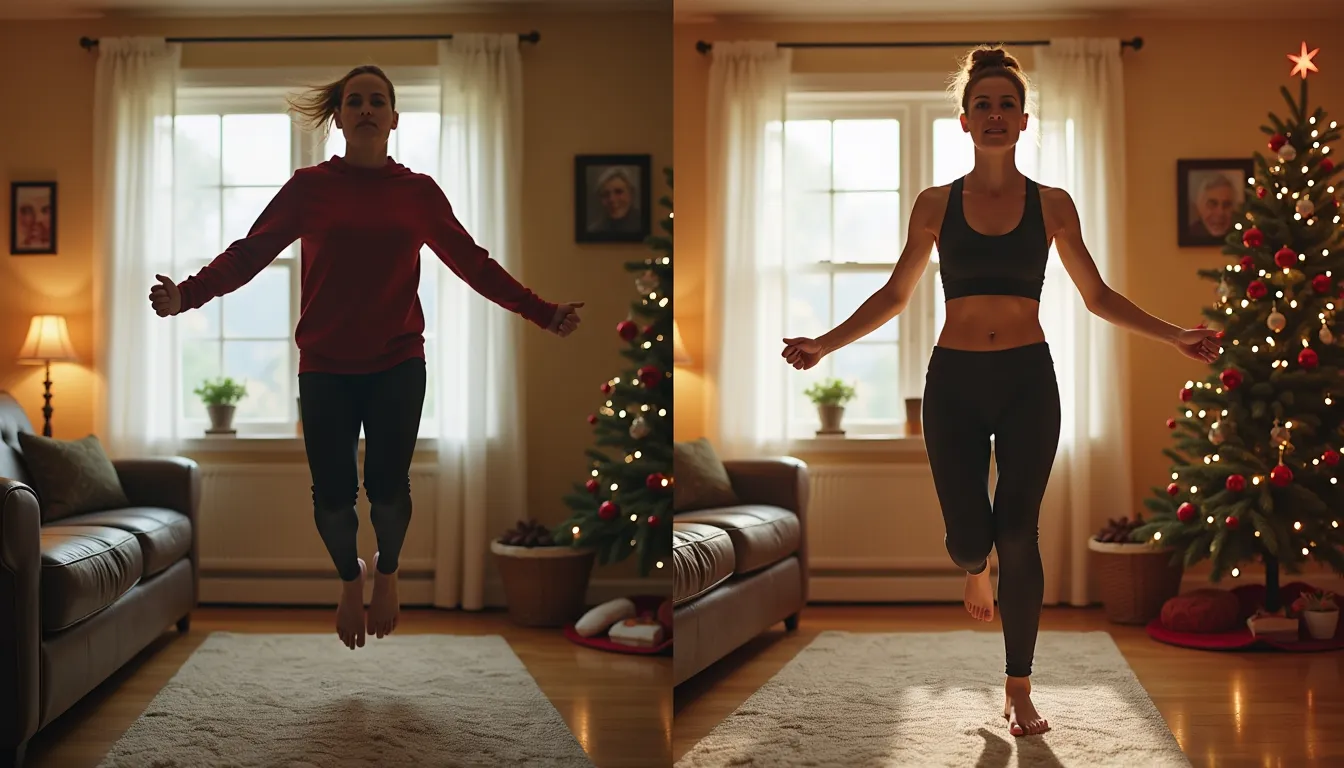Sports
Inside the Ducks’ “Up and Down” Road Trip

IRVINE, Calif. – After playing four games in six days on the East Coast, the Ducks have returned to Southern California for a six-game homestand.
With a 4-4-2 record through 10 games, it’s been a mixed bag of performances with the team struggling to generate offense at a consistent level. Goaltender Lukáš Dostál has been a big reason why the team even has four wins to their name in the early going.
Anaheim went 1-2-1 on their recent road trip and was outscored 8-11 in those four games. A more consistent offensive output could have seen them go 3-1-0 during the trip as they lost two of those games by one goal. Both losses also generated just one goal per game.
Charles LeClaire-Imagn Images
“I thought we played two really good periods with the Rangers,” head coach Greg Cronin said. “The second and third period, I think we outshot them 25 to 12 and then I thought the Jersey game was one of the worst games we played along with Colorado.
“We looked weak and slow. I don’t know the answer to that. And then I thought the Islanders game was a decent game. Analytically, we didn’t do great in that game, but I thought we did a good job defensively. And then the Pittsburgh game, the first and third periods, we just got smoked. The second period was the even period.”
3 Takeaways From Penguins 2-1 Overtime Victory Against Ducks
“I think there were stretches where we played really well,” winger Frank Vatrano said. “Obviously, there were stretches where we defended a lot more than we wanted to. I think if you look at our record right now, it could be a lot better. I think we’re trying to create more offensively but also be sound defensively.
“I think it’s just paying the extra attention to detail in practice and knowing what we need to do to execute every night and everyone knowing their role. For us, I think there’s a positivity, there’s stuff that we can build on and there’s stuff that we can keep working on.”

Wendell Cruz-Imagn Images
The Ducks have turned over in a couple of areas, with Cronin citing the team’s decreased average age. The additions of Cutter Gauthier and Tristan Luneau—who was recently reassigned to the AHL—along with prominent roles for players like Leo Carlsson, Pavel Mintyukov and Lukáš Dostál—has them in a period where connectivity isn’t quite where it could be at yet, according to Cronin.
“There’s a connectivity that older teams have that usually reflects experience,” he said. “ They understand what’s going to happen before it happens when all the young guys, they don’t know. They have to learn by doing, right? Our best player has been our goalie. let’s be honest. We’re 4-4-2, and could easily be (worse) if he’s not playing how he’s playing.”
Vatrano echoed Cronin’s statement about connectivity throughout the lineup needing to improve, explaining that the game will come a lot easier to them when everyone is on the same page.
“It takes the thinking out of it when you get into the zone offensively,” Vatrano said. “Then, defensively, you know that there’s going to be guys in specific spots for your outs that either create offense or (help you) get out of a defensive situation. That comes with time and we’re 10 games in now, so we’re in a decent spot and we’ve just got to keep growing every single day.”
“The area that we’re not connected in (right now) is our breakouts,” Cronin said. First of all, the faceoffs. We lose faceoffs, and we get stuck in our zone. So it’s our faceoffs, then our (defensive zone coverage), which is a product of not getting pucks out on the breakout cleanly. And then the last piece is the offensive zone. We’re not getting zone time. We’re just disjointed as a group. We’re not on the same page offensively.”

Ed Mulholland-Imagn Images
So how do things change? What needs to happen? And who does the onus fall on between the coaching staff and the players?
“I think it’s both of us,” winger Alex Killorn said. “We’re both in the fight together. No one owns it more than another group. We both own it equally.”
The lack of offense generated comes back to execution, which has been lacking in most of Anaheim’s games. Both Killorn and Cronin feel that the team needs to keep it simple and that will help get things in order offensively.
“First touches, if they go straight to the D, typically result in more shots,” Killorn said. I think we hold onto it, try to do it ourselves, and then we end up turning it over, so today was great in the sense that we worked on that in practice.”
“It’s execution,” Cronin said. I showed it today, there are plays that they can make that are very simple plays that would lead to a 90 percent possession for the next three seconds. We chose not to make the simple play, we chose to make the difficult play or we chose to stick handle through people when we didn’t have to.
“I have 100% confidence that the teams that win in this league don’t make those plays. They make the simple plays and they trust that that play is going to lead to an opportunity to recover the puck or get a scoring chance.”

Brad Penner-Imagn Images
Cronin pointed to turnovers in the game against the Penguins being a big reason why they failed to generate much offensively. Chances can’t be created without the puck and the puck can’t be had if it’s in the other team’s possession.
“I mapped it out. We had 14 opportunities to get down deep into Pittsburgh’s zone and keep possession of the puck and when you either don’t have it or (the other team is) better than you that night, just let the puck do the work. So the connectivity is driving it deep, we’re going low-high, or throwing pucks to the net, trying to create a little bit of an assault on them. We didn’t do it once. We turned it over before we got to the blue line. Then (when) we got in the zone, we turned it over again.
“And then what (the Penguins) did is what we should have been doing. They drove everything deep, either with their puck positioning on dumps or their legs driving deep. Then what they did—and that’s why the shots were so skewered—is they didn’t even dust the puck off, they went low-high shot, low-high shot. Then you wear teams down, then you can get that skating movement that you see.”

Charles LeClaire-Imagn Images
The turnovers plus the repetition of the Penguins’ game plan to keep getting shots off from wherever they could is what Cronin felt caused the Ducks to wear down on top of playing their fourth road game in six days.
While faceoffs may not play as important a role as they are believed to, they are still important in certain situations. The ability to prevent a clean faceoff loss can help players get out of the defensive zone a bit quicker or allow supporting players to battle for the puck while it’s tied up.
Related: The Anaheim Ducks’ Faceoff Concerns
The Ducks have been a below-average team in the faceoff dot this season and those struggles have contributed to their inability to get out of the defensive zone at times.
“If you get a team to ice the puck and they’re tired, you get tired legs (on their end) and you put your fresh legs over the boards,” Cronin said. “You want your best players on the ice. If your centerman’s winning that faceoff, you have an opportunity to gain an advantage right out of the drop of the puck because you’ve got fresh legs against tired legs.
“If you can’t win that, then they come down and what happens is they win it and then it goes down to our zone and their tired legs get replaced with fresh legs, and we can’t get it out. That advantage has been flipped in eight seconds. and that’s happened way too much this year.”

Charles LeClaire-Imagn Images
Despite all of the struggles in the early going, Cronin believes their current record is satisfactory for the way the team has performed.
“We’re 4-4-2 (and have) played seven games on the road. If somebody said that would happen in September, would you take it? I’d take it. Seven road games, we’re 4-4-2? Take the defensive zone and the offensive zone out of it and the faceoffs because those are sore areas. I’ll take it.
“Now, if somebody told me we were going to be 4-4-2 and (Vatrano) was going to have zero 5-on-5 goals. (Trevor Zegras) was going to have zero 5-on-5 goals. Cutter Gauthier’s going to have zero goals at 5-on-5—he’s got zero goals, period. (Mason McTavish) was going to have zero 5-on-5 goals. If you told me that and we were 4-4-2, I’d say, ‘I’ll take it.’”
Related: Takeaways from the Ducks 2-1 OT Loss to the Penguins
“So, the connectivity piece, all that stuff, eventually, if they stick to it, they’ll score. Guys that score, they’ll score. We’re going through a dry spell. And then the other side of that is when you don’t score—and I just rattled off four or five guys—they’re (gripping their sticks too tight). They don’t have the same confidence, they’re searching for ways to score.
“Instead of being singularly focused on the process and doing the right thing, their mind is thinking, ‘Well, if I make this extra play, I’ll get a goal.’ That’s the exact opposite of what you should do as opposed to what complements the team and gets possession time. Possession time leads to scoring chances.”
Ducks Legend Getzlaf Conveys Desire for NHL Front Office Role










